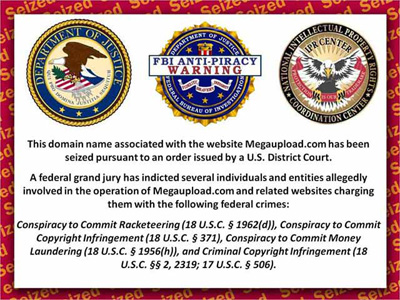The Motion Picture Association of America, the music industry and several other major players that supported the now defunct Stop Online Piracy Act are dinosaurs butting their heads against the tidal wave of the future. Either you go with it or become obsolete. While I am not endorsing online piracy, the bill that was put forth was overreaching and wasn’t in any way designed to stop online piracy as much as it was developed to kill competition and take control of a market of ideas. If Texas Rep. Lamar Smith or any of the bill’s sponsors had bothered to listen to a couple of tech geeks before drafting the bill, they would have known that there are many ways to skirt the proposed law and illegally download all the garbage music and terrible movies that a person could want.
The damaging implications far outweigh any good that would have come from the bill. Under SOPA, any website that knowingly or unknowingly posts copyrighted materials could be seized by the government with little due process, and funding from advertisers could be blocked. Realistically, the government can still do this, as it happened in the recent case of the government shutting down the website Megaupload. It’s likely that Megaupload is guilty as hell, but the seizing of the website could be argued to be illegal if America actually still believes in due process (which we might not). But SOPA expanded upon those powers. The bill’s sponsors claim that the point of the bill was to block foreign sites from distributing pirated content. But much of the problem lies simply in the language of the bill indentified website as being foreign or domestic. A foreign hosted website like Wikileaks could be identified as being a domestic website because it’s registered within the US.
There’s no doubt that pirating is costing several industries and artists millions of dollars, but the scope of the bill could have potentially greatly hindered other industries that exist purely online and are acting within the law. If bills like SOPA keep coming down the pipe (which they will) it will have major consequences for websites like Digg, Reddit, YouTube and many other social websites that rely heavily on user created content. I hope Internet piracy is weeded out, but it can’t be done at the cost of an open internet. It’s just too important to lose. If Hollywood and the music industry are losing money, then they’re going to have to figure out a better model or cease to exist. That’s the painful truth. Not all industries are going to survive as they are. It’s always been that way.
What’s also true is that there are more avenues for artists to make money now than ever before, and this can be attributed to many of those websites that would have been impacted by SOPA. The real music industry is thriving. Tons of bands are able to make a living off of their music that they couldn’t have in the past. Just check out the 2012 Bonnaroo lineup when it’s released. There will undoubtedly be plenty of bands whose popularity was developed via a social network. Of course most won’t be able to buy private jets anytime soon, but if that’s their motivation then let’s hope they go the way of the dinosaur.














